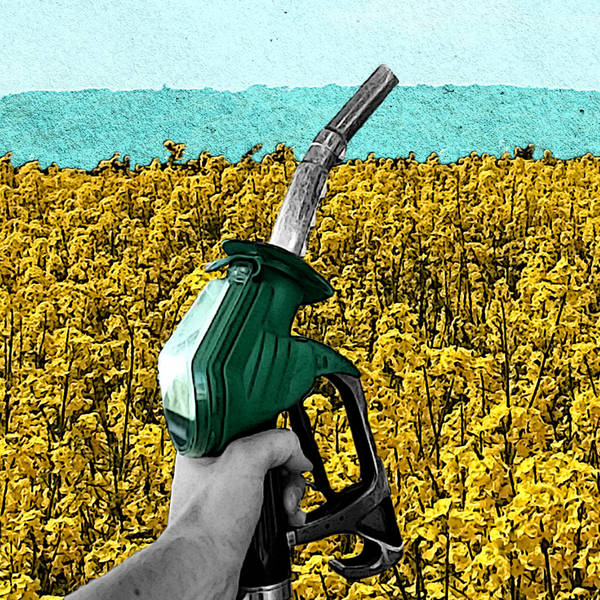
Why use food for fuel?
Biofuels are a way to make our cars, lorries and even planes run on renewable fuel. They’re often made from food crops.
Globally 7% of cereal crops and 15% of vegetable oil crops are used to make biofuel – according to data from the Organisation for Economic Co-operation and Development (OECD) and the United Nation’s Food and Agriculture Organization (FAO).
As pressure on food prices and supply chains increase, some people are questioning why we turn food into fuel.
In this programme we’ll be looking at the history of biofuels, why food crops have been used, and what alternatives may exist. Joining us are Daniel Kammen, Professor of Energy at University of California, Berkeley, who is currently serving as a senior advisor for energy and innovation in the Biden administration in the United States; Bernardo Gradin, the founder and CEO of Gran Bio, a company that produces biofuel made from sugar cane waste in Brazil; and Sailaja Nori, Chief Scientific Officer at Sea6 Energy, a company investigating the possibilities of biofuel made from seaweed in India and Indonesia.
If you would like to get in touch with the show, please email: thefoodchain@bbc.co.uk
Presented by Ruth Alexander.
Produced by Beatrice Pickup.
Additional reporting by Ashish Shama.
The deadline for nominations for the award referenced at the end of this podcast has been extended to 23:00 GMT on Thursday 18th August 2022. *Page updated 28 July 2022 due to entry window extension.
(Image: Field of rapeseed crops behind picture of fuel nozzle. Rapeseed image credit: BBC. Fuel nozzle credit: Matthew Fearn/PA)